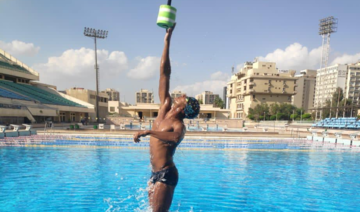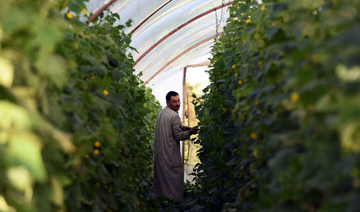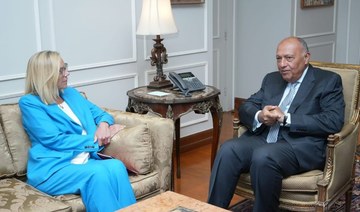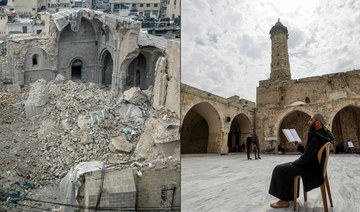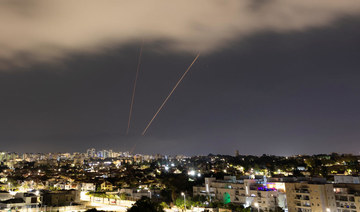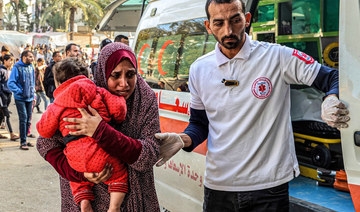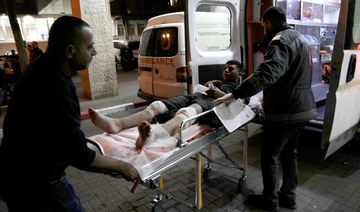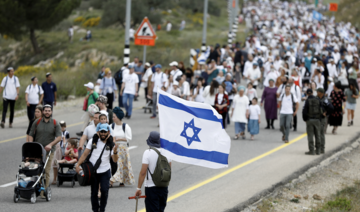CAIRO: Yasmina Al-Habbal always wanted to take in an orphan but only did so last year after Egypt’s government eased regulations over who could do so and campaigned to change public attitudes, enabling her to take home baby Ghalya.
Formal adoption — where people permanently adopt a child, give them their surname and make them their legal heir, is not accepted in Islam due to the importance of respecting lineage, and not practiced in Egypt, although people are encouraged to sponsor children or foster them.
Complexities around Islam and adoption prevented some people from fostering and instead people chose to support children who remained in the full-time care of orphanages.
In January 2020 however, Egypt broadened the rules for who can foster a child to include single women over 30 and divorcees, and reduced the minimum level of education required, hoping that by increasing the pool of prospective foster parents it could make fostering more widespread and socially accepted.
A social media campaign “Yala Kafala” (Let’s sponsor a child) encouraging both taking children home and financing them, started by an Egyptian woman, has also helped spark change.
Habbal, 40 and unmarried, had always dreamt of having a daughter and said she faced social pressure when choosing to care for now seven-month-old Ghalya.
“My friends said to me: ‘how will you face society? What are you going to tell people? Are you going to tell Ghalya that she isn’t your child? Are you going to tell everyone else?’.”
Habbal assured her friends she would respond by telling people their prejudiced views were wrong, and she would tell Ghalya it didn’t matter where she came from.
“I’m going to tell Ghalya... ‘what is important is the positive change you’ve made to so many people’s lives’.”
She added she has a seen a change in attitudes to fostering, and her experience is encouraging others to apply.
“In this past year, the number of families who have applied to sponsor orphans shows just how much people have accepted it. People used to be afraid of it, but now, Egypt’s highest religious authority Al-Azhar, civil society organizations and the ministry of social solidarity are all trying to make the idea more widespread,” she said.
Reem Amin, a member of Egypt’s social solidarity ministry’s alternative families committee said its main goal was to remove the need for orphanages by 2025.
“An orphanage’s main goal is as a stopover point before the child moves to a foster home,” she said.
The ministry’s legal adviser Mohamed Omar said around 11,600 families have taken in orphans since January 2020 and another 11,000 orphans needed homes.
In the second half of 2020 as restrictions due to the pandemic began to ease, the ministry received 1000 requests from families wanting to sponsor orphans.
Cairo couple Mohamed Abdallah and his wife had initially failed to conceive a child of their own and decided to take in an orphan instead.
Months later, Abdallah’s wife Merna became pregnant and now they are raising their biological son Soliman and Dawood, their foster child. “I have a dream that they will be an example for a normal society — two brothers who love each other, even though they are not related by blood,” said Abdallah.
Egypt’s fostering campaign helps orphans find homes
https://arab.news/9b6wr
Egypt’s fostering campaign helps orphans find homes
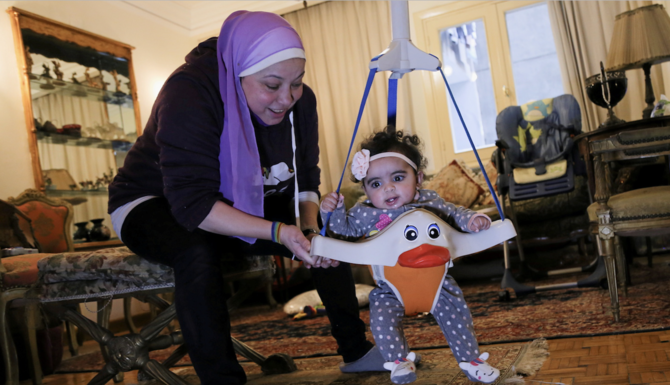
- In 2020, Egypt broadened the rules for who can foster a child to include single women over 30 and divorcees
- A social media campaign encouraging both taking children home and financing them has also helped spark change
Heavy rains lash UAE and surrounding nations as the death toll in Oman flooding rises to 18
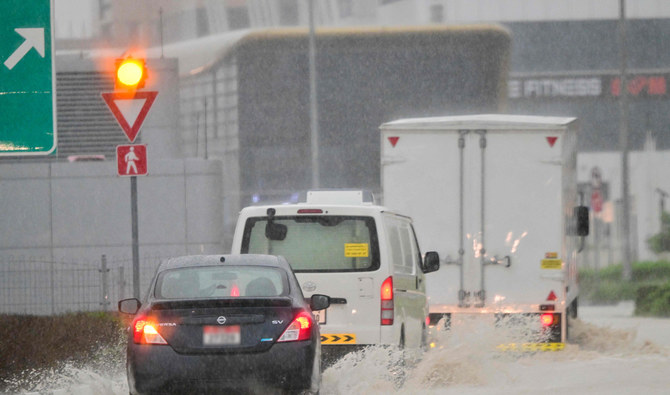
- Lightning flashed across the sky, occasionally touching the tip of the Burj Khalifa, the world's tallest building
- Authorities sent tanker trucks out into the streets and highways to pump away the water
DUBAI: Heavy rains lashed the United Arab Emirates on Tuesday, flooding out portions of major highways and leaving vehicles abandoned on roadways across Dubai. Meanwhile, the death toll in separate heavy flooding in neighboring Oman rose to 18 with others still missing as the sultanate prepared for the storm.
The rains began overnight, leaving massive ponds on streets as whipping winds disrupted flights at Dubai International Airport, the world’s busiest for international travel and the home of the long-haul carrier Emirates.
Police and emergency personnel drove slowly through the flooded streets, their emergency lights flashing across the darkened morning. Lightning flashed across the sky, occasionally touching the tip of the Burj Khalifa, the world’s tallest building.
Schools across the UAE, a federation of seven sheikhdoms, largely shut ahead of the storm and government employees were largely working remotely if able. Many workers stayed home as well, though some ventured out, with the unfortunate stalling out their vehicles in deeper-than-expected water covering some roads.
Authorities sent tanker trucks out into the streets and highways to pump away the water.
Rain is unusual in the UAE, an arid, Arabian Peninsula nation, but occurs periodically during the cooler winter months. Many roads and other areas lack drainage given the lack of regular rainfall, causing flooding.
Initial estimates suggested over 30 millimeters (1 inch) of rain fell over the morning in Dubai, with as much as 128 mm (5 inches) of rain expected throughout the day.
Rain also fell in Bahrain, Qatar and Saudi Arabia.
In neighboring Oman, a sultanate that rests on the eastern edge of the Arabian Peninsula, at least 18 people had been killed in heavy rains in recent days, according to a statement Tuesday from the country’s National Committee for Emergency Management. That includes some 10 schoolchildren swept away in a vehicle with an adult, which saw condolences come into the country from rulers across the region.
Education in crisis: Gaza’s schools destroyed amid Israel’s war
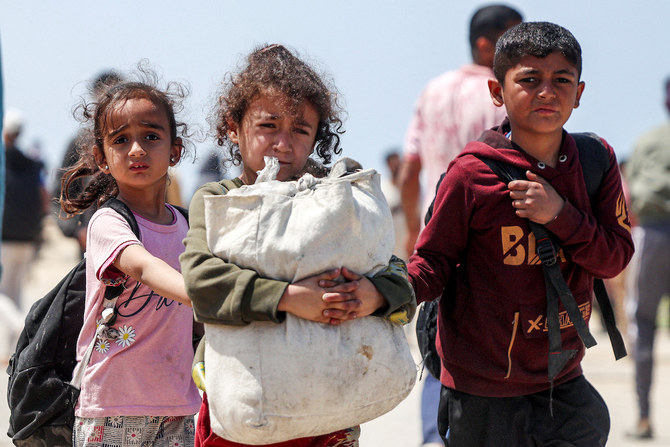
- March report found approximately 87.7 percent of school facilities in Gaza had been either damaged or destroyed
LONDON: The long-term potential of and opportunities for children in Gaza is being severely threatened by the Israel-Hamas war, charity Save the Children has said.
All schools in Gaza have been closed since Israel launched its offensive in October, impacting 625,000 students. Meanwhile, relentless airstrikes have destroyed every university in the Strip.
Ahmad, a displaced father in Rafah, shared his despair for the future of his three children. “I can’t see a life for them anymore,” he said.
For Ahmad and countless other parents, the primary goal is keeping their children alive.
But, said Save the Children, many are aware that even if they survive the immediate threats of bombings and starvation, their education and development will be hugely impacted.
A report published in March found approximately 87.7 percent of school facilities in Gaza had been either damaged or destroyed. A total of 212 school buildings received direct hits, while a further 282 sustained various degrees of damage.
Access challenges, especially in the North Gaza governorates, has led the Education Cluster to conduct a satellite-derived damage assessment to confirm the state of educational facilities.
According to International Humanitarian Law, schools generally should not be targeted and such attacks represent severe violations against children. Prolonged absence from school is considered likely to cause not just a break in learning but regression in progress, according to Save the Children.
Past experiences indicate that children are less likely to return to school the longer they are away from it, jeopardizing their prospects for economic well-being and mental and physical health. They also face increased risk of violence and abuse.
“Children have no escape from the reality of war, no stable routine, no opportunity to learn or play – and for many, no family. These are essential protective factors that children need to mitigate against the risk of lasting mental harm,” said a statement from Save the Children.
Children in Gaza have consistently expressed a strong desire to return to school, citing it as one of their top priorities for restoring a sense of normalcy and continuing their educational and social development.
“A few days ago, one of my children told me, ‘I want to eat healthy food. I really want to go to school and live my old, normal life. And I want to play’,” said Maher, a father in Gaza.
Save the Children has called for an immediate and comprehensive ceasefire and an end to the siege on Gaza.
It has urged the reopening of all crossings to ensure the flow of both commercial and humanitarian goods, as well as demanding that the Israeli government ceases unlawful attacks on educational facilities and fully implements the Safe Schools Declaration.
Denmark to close its Iraq embassy
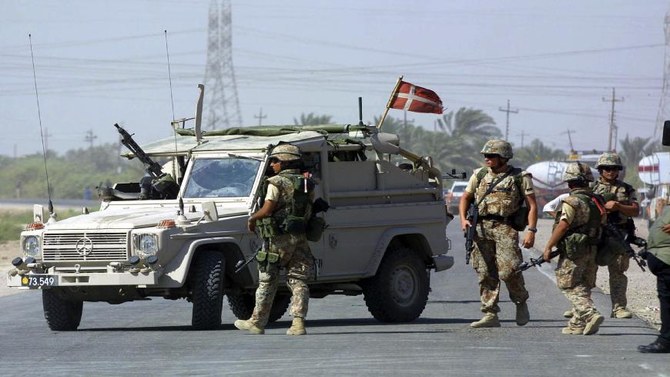
OSLO: Denmark will close down its embassy in Iraq on May 31, the Danish foreign ministry said in a statement on Tuesday.
The diplomatic mission in Baghdad was formally opened in 2020 to support the Danish command over and contribution to the NATO Mission Iraq (NMI).
The majority of the Danish military contribution has since been withdrawn.
Egypt, UN coordinator stress need for smooth aid delivery to Gaza
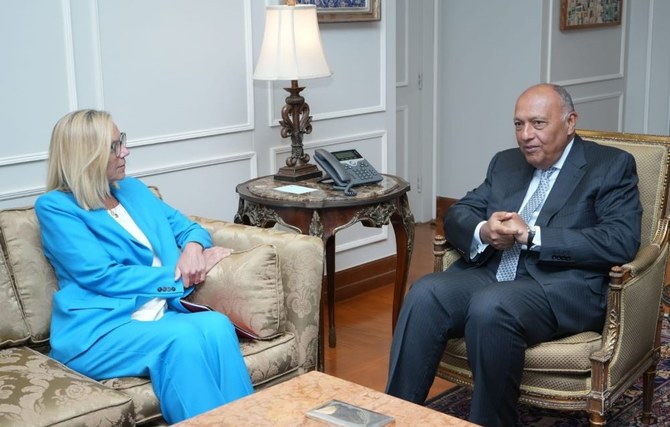
- Sameh Shoukry and Sigrid Kaag discussed the various facets of the humanitarian crisis in the besieged territory
- Kaag said she appreciated the pivotal role played by Egypt in containing the humanitarian repercussions of the crisis
CAIRO: Egypt’s Foreign Minister Sameh Shoukry and the UN’s coordinator for the Gaza Strip Sigrid Kaag on Tuesday discussed the various facets of the humanitarian crisis in the besieged territory, the volume and quality of aid entering it and the priorities regarding the type of aid.
The meeting took place at the Foreign Ministry’s headquarters in Cairo where the two sides reviewed the ongoing endeavors with various parties to expedite the launch of the UN mechanism as soon as possible.
They affirmed the inevitability of intensifying the volume of aid to meet the needs of the Palestinian people as well as providing the necessary protection for international relief personnel present in the Strip.
Shoukry reaffirmed the legal and humanitarian responsibility incumbent upon international parties to ensure the implementation of the provisions of Security Council Resolution 2720 and all other UN resolutions relevant to the situation in Gaza.
He stressed the necessity of dealing seriously and urgently with the humanitarian crisis in Gaza by reaching an immediate and permanent ceasefire, as well as sustaining aid access in a full, safe and intensive manner to all areas, the removal of impediments imposed by Israel in this regard and the opening of all land crossings to increase the flow of aid.
Kaag affirmed her keenness to continue coordination and consultation with Egypt to carry out her duties. She said she appreciated the pivotal role played by Egypt in containing the humanitarian repercussions of the crisis as well as the existing cooperation between the Egyptian Red Crescent, Egyptian civil society organizations and UN relief agencies to deliver aid.
Arab League condemns surge in West Bank settler attacks
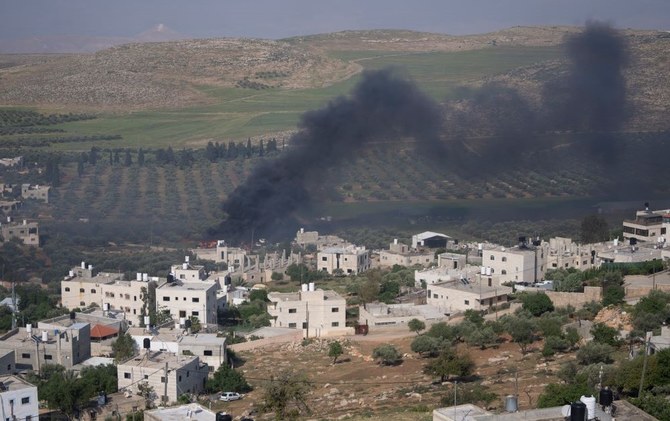
- Gamal Roshdy: Incidents of violent crimes, arson and property destruction perpetrated by armed settlers have seen a noticeable surge
- Tensions in the West Bank have been especially high since the outbreak of the Israel-Hamas war in the Gaza Strip on Oct. 7
CAIRO: The Arab League on Tuesday strongly denounced relentless attacks carried out by Israeli settlers on Palestinian cities and towns across the West Bank.
“These attacks, often perpetrated under the tacit approval and protection of Israeli authorities, are exacerbating a pervasive state of impunity and continued oppression of Palestinian lives and properties,” the league said in a statement.
Gamal Roshdy, the secretary-general’s spokesperson, said that while daily atrocities committed by Israeli forces in Gaza demand attention, they must not overshadow the escalating violence in the West Bank.
He added: “Incidents of violent crimes, arson and property destruction perpetrated by armed settlers have seen a noticeable surge, facilitated by a settler-led government that shields them from accountability.”
Roshdy warned that the imposition of sanctions by some countries on settlers, though a belated gesture, falls short of addressing the escalating crisis and safeguarding Palestinian civilians in the West Bank.
He called for action from the UN Security Council to end the “shameful cycle and the culture of impunity prevailing in the West Bank,” and to “hold these settlers accountable for their reprehensible crimes against the Palestinian people.”
Tensions in the West Bank have been especially high since the outbreak of the Israel-Hamas war in the Gaza Strip on Oct. 7.
On Friday, dozens of Israeli settlers stormed a Palestinian village in the Israeli-occupied West Bank, shooting at and burning houses and cars.
The Palestinian Foreign Ministry has strongly condemned the settler violations and crimes against Palestinians across the West Bank.





